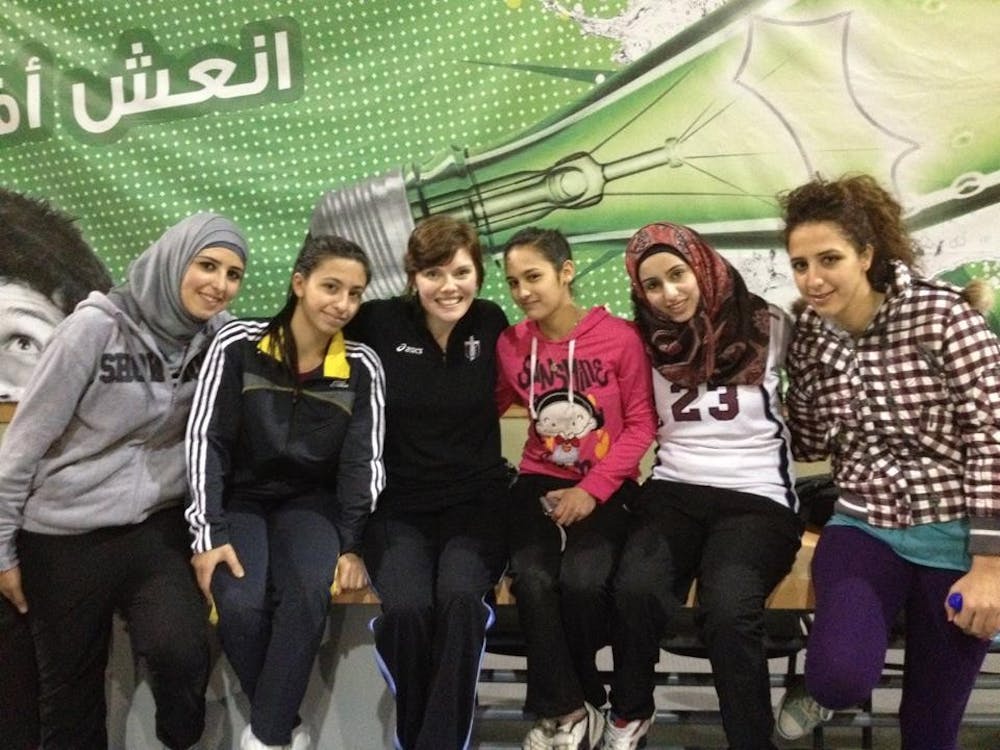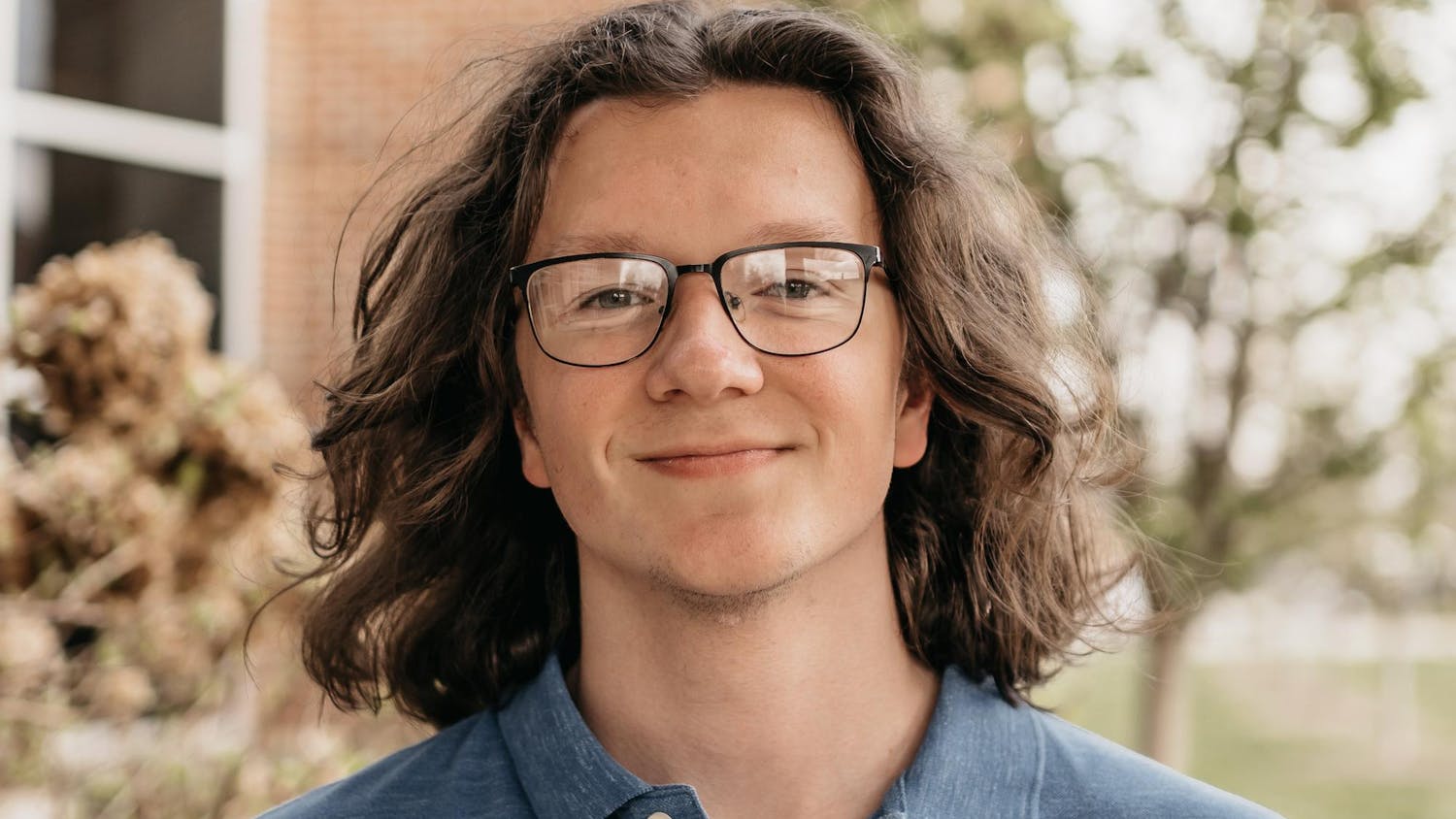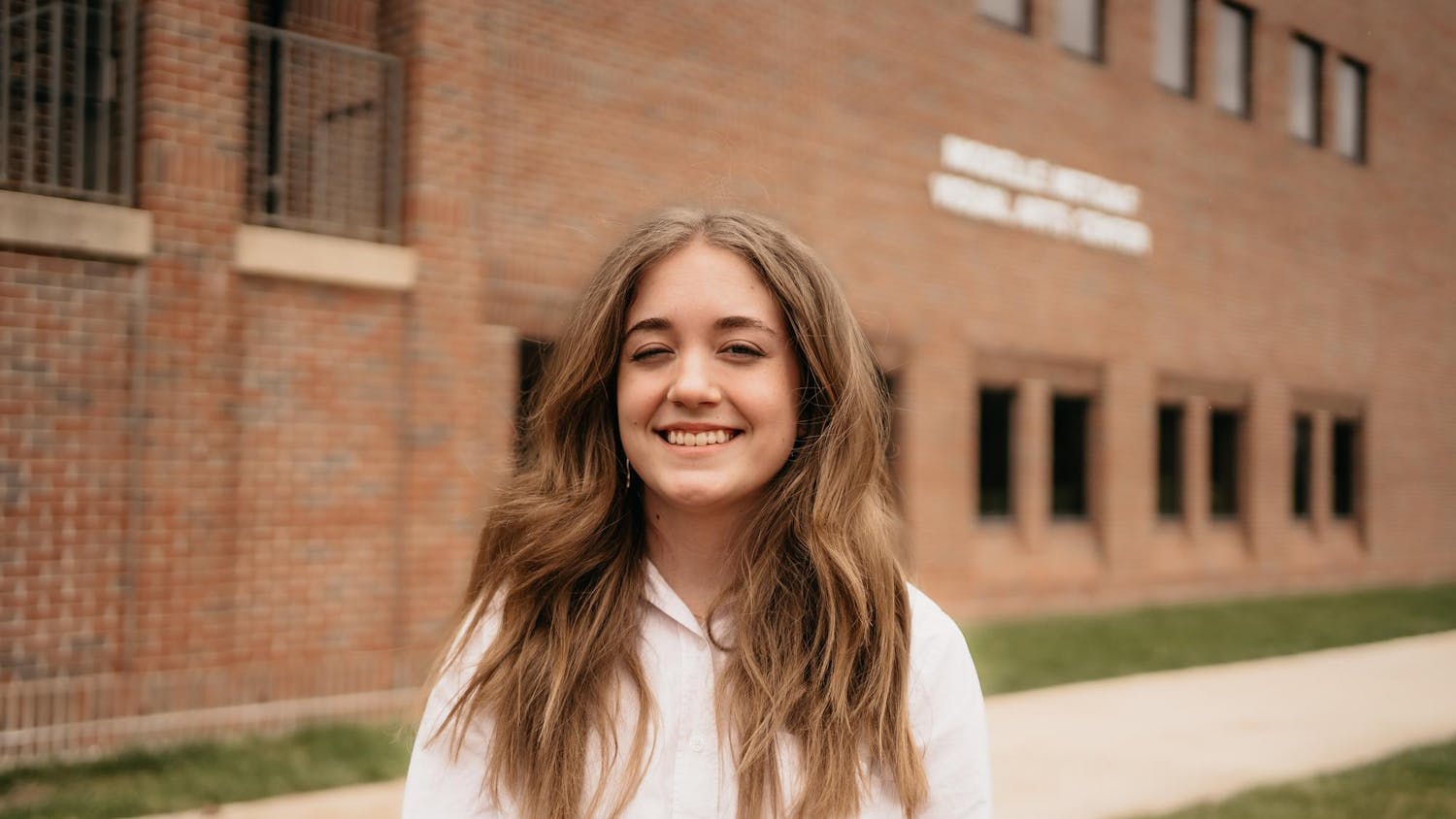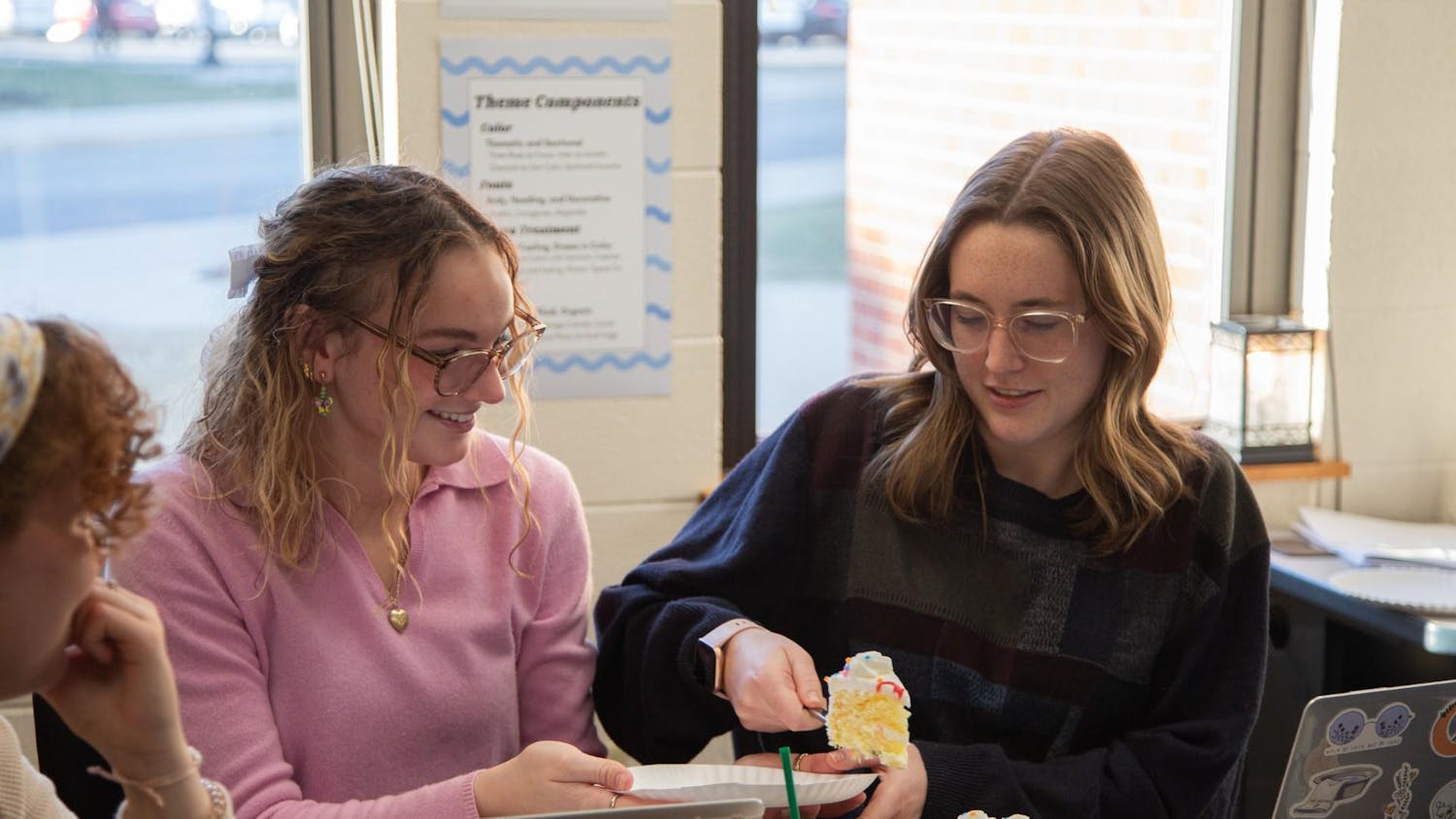By Meredith Sell
The volleyball soars over the net, the quick return of a young woman who has a strong presence on the court. Her eyes are focused, barely blinking. She's quiet, except for the occasional outburst as she forces the ball back up and over.
She's like any other athlete, with admirable posture and intensity. The game, right now, is what consumes her.
There are only a few things different: the leggings and long sleeves covering her from wrist to ankle, and the head scarf wrapped around her head. This young woman is a Palestinian athlete.
Athletics isn't the first thought when considering the lives of women in the Middle East, but it's a part of their lives that Taylor Volleyball Head Coach Brittany Smith has witnessed multiple times in the past few years.
"Sport is definitely a part of Palestinian culture," Smith said. "Everyone plays some type of sport."
This past January, Smith travelled to Israel with Judy Fox, Founder and President of Ignite International, to work with Palestinian volleyball teams and coaches. While she was there, she saw stereotypes and assumptions crushed by the foot of reality and the hand of empowerment.
Smith had been there before, Summer 2010, with Taylor's team for a sports missions trip through Ignite. Lee University sent its volleyball team the next year.
"We didn't do any training of coaches and neither did Lee, but by the end of Lee's trip the coaches . . . wanted to see the American coaches come back and help train them."
The Palestinian Volleyball Federation invited American coaches to come and train their coaches. Smith jumped at the opportunity, seeing the possibility not only for ministry, but also to meet with missions organizations there about establishing long term partnerships with Taylor.
"During the day, we would meet with different organizations that were doing ministry or outreach to the Palestinians . . . We would do player clinics in the afternoons, and then in the evenings we would do coaching clinics."
Coaches were given handouts while Smith and Fox worked with the players.
"As they started to learn what we were training the teams, we involved them in that, and said, 'Okay, now you do it.'"It was a reversal: women empowering men in a society where women in leadership aren't typically accepted.
"(The coaches) showed us respect just because we were Americans and we had credentials they valued, but if there were a woman in their own country that had the same expertise, they wouldn't have accepted it from her.
This was a challenge for Smith, because a major part of her philosophy is empowering people-men and women-to recognize their gifts and use them to their full potential.
"It's hard to think about empowering women in that culture, because there are so many cultural barriers for them."
Empowerment became a goal in the middle of Smith's trip. Initially, her desire was to love the unloved: Palestinians.
In 2010, when she was there with Taylor Volleyball, she noticed a disconnect with Western media.
"We were there when the Turkish flotilla attack happened, and we were called from back here in the United States, asking should we evacuate, because of what the media reported."
They were in Tel Aviv at the time. No one there was upset. Most people didn't even know what had happened. As the media suggested fighting and war, daily life in Tel Aviv continued as normal.
"Then the fact that I was here and three Palestinian youth were killed, and it wasn't reported in any media by anybody, yet . . . I was completely safe-it's definitely changing my perspective on how our media reports situations in Palestine and Israel."
Smith didn't feel endangered walking through Bethlehem at night. She was never hooted or whistled at, like is common in the US.
"It's a culture that very much respects women in one sense, but then it's also different, because women in leadership positions, it's not so respected. We constantly had that dichotomy."
As she worked with the Palestinian coaches and teams, Smith's focus moved from merely loving them to empowering them, from focusing on what she could teach them to how she could show them what they already knew.
"Develop a relationship with other people where you can speak truth to them and say, 'How can I walk beside you as you do this,' and remind you that, yeah, you are equipped to do this."
The partnerships Smith sought for Taylor while she was there also focused on empowerment. The Ida Refugeee Camp School and the YMCA especially stuck out as partnership possibilities.
"To really seek ways to empower those who are there through ongoing relationships, through better partnerships, through equipping people, as opposed to just charity or us feeling good about what we did-that's what we're trying to do."
Summer 2010, Taylor's team did a volleyball clinic with the Ida Refugee Camp School.
"We shattered every stereotype. You have American Christian women . . . working with Muslim boys from the ages of 6 to 15, 16."
Smith returned to Israel this January with compassion fueled by that prior experience. This compassion adapted into a passion and purpose.
"That was a really unique privilege, to shift that mind from thinking I just want to be with these people-I love them and I want them to know how much God loves them-to I want to be a part of empowering them because so many people are not."
One appearance of empowerment is the improved volleyball skills of a young woman wearing a head scarf.




